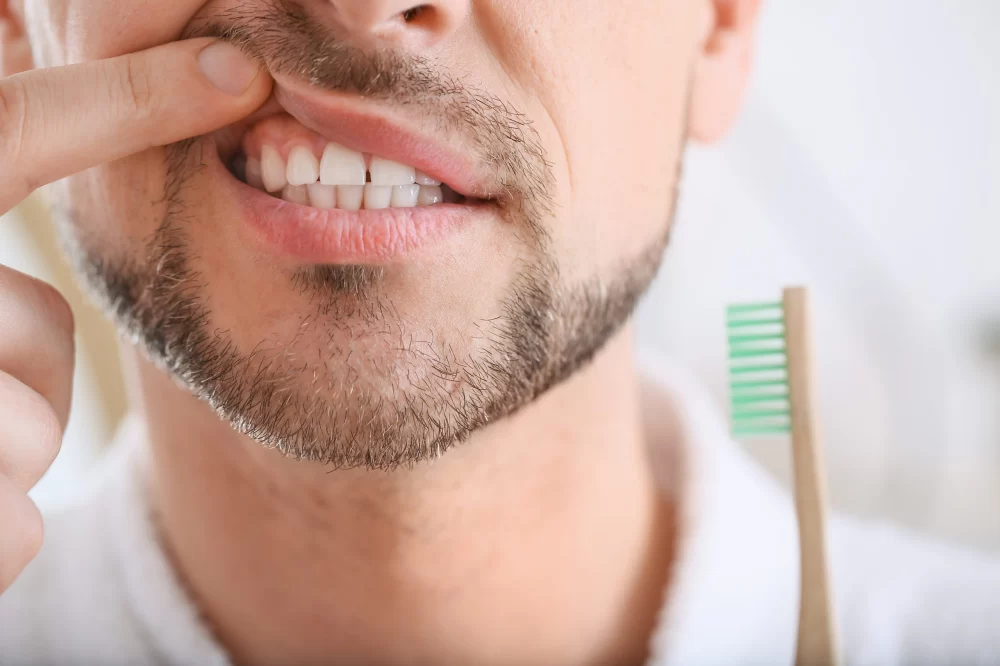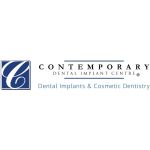
The Link Between Alcohol Consumption and Oral Health
Alcohol is a common part of social events and celebrations, but its effects on your oral health can be far-reaching and sometimes severe. While most people are aware of the impact alcohol has on the liver, heart, and other organs, many fail to recognize how it affects their teeth, gums, and overall oral hygiene. In fact, frequent or excessive alcohol consumption can lead to a variety of dental issues, some of which can be permanent if not managed properly. From dry mouth to gum disease, the consequences of alcohol on your oral health are more significant than many realize.
How Alcohol Affects Your Mouth
When you drink alcohol, it enters your bloodstream and spreads throughout your body, including your mouth. This can have several adverse effects on your oral health:
- Dry Mouth: Alcohol acts as a diuretic, which means it dehydrates your body. This includes reducing the amount of saliva in your mouth. Saliva plays a crucial role in cleaning the mouth and protecting it from bacteria and plaque buildup. Without enough saliva, your risk for cavities and gum disease increases.
- Increased Plaque Buildup: Alcohol consumption can lead to an increase in plaque accumulation on your teeth. Plaque is a sticky film of bacteria that can build up and cause tooth decay, gum inflammation, and bad breath.
- Gum Disease: Heavy drinking can weaken your immune system, making it harder for your body to fight off infections, including those in your gums. This can lead to gum disease (gingivitis) and, in more severe cases, periodontitis, which can result in tooth loss.
- Tooth Sensitivity: Excessive alcohol consumption, particularly acidic drinks like wine, can erode tooth enamel over time. This makes your teeth more vulnerable to decay, sensitivity, and staining.
How Alcohol Leads to Tooth Decay and Other Dental Problems
One of the main problems with alcohol and oral health is the increased risk of tooth decay. This happens for several reasons:
- Increased Sugar Intake: Many alcoholic beverages, especially cocktails and sweet wines, contain high amounts of sugar. When you drink these, the sugar interacts with the bacteria in your mouth to form acids that attack your tooth enamel. This acid wear can lead to cavities and long-term damage.
- Acidic Drinks: Alcoholic drinks like wine, beer, and some mixed drinks are acidic and can erode enamel, which leaves teeth more vulnerable to decay. Over time, the acidic nature of these drinks can weaken the structure of your teeth, making them more prone to fractures or chips.
- Weakened Immune System: Chronic alcohol consumption can weaken your immune system, impairing your body’s ability to fight off infections, including oral infections. This makes it easier for harmful bacteria to thrive in your mouth, leading to gum disease and other oral health problems.
The Impact of Alcohol on Gum Health
Your gums play a crucial role in keeping your teeth anchored and healthy. However, alcohol can have a significant impact on your gum health. Alcohol consumption is known to:
- Increase Inflammation: Alcohol can lead to inflammation in your gums, which may cause redness, bleeding, and swelling. If left untreated, this can progress to more severe gum disease, such as periodontitis, which may eventually lead to tooth loss.
- Promote Bacterial Growth: As mentioned earlier, alcohol decreases the amount of saliva in your mouth, which is essential for controlling harmful bacteria. When saliva production is reduced, bacteria can flourish, increasing your risk for gum infections and other oral health issues.
Alcohol and Oral Cancer: A Risk Factor You Shouldn't Ignore
Aside from causing gum disease and tooth decay, alcohol consumption is also a significant risk factor for oral cancer. Studies show that individuals who drink alcohol regularly are at a higher risk of developing cancers in the mouth, throat, and other parts of the oral cavity. This risk is even greater for people who smoke in addition to drinking alcohol.
How to Protect Your Oral Health While Enjoying Alcohol
While completely cutting out alcohol is the best option for optimal oral health, most people aren't ready to make that change. However, there are several steps you can take to reduce the negative impact of alcohol on your oral health:
- Drink Water Between Alcoholic Beverages: To help prevent dehydration and dry mouth, make sure to drink water between alcoholic drinks. This helps replenish saliva and keeps your mouth hydrated.
- Brush and Floss Regularly: Maintaining a strong oral hygiene routine is critical, especially if you drink alcohol regularly. Brush your teeth at least twice a day and floss daily to remove plaque and food particles that could contribute to cavities and gum disease.
- Use Alcohol-Free Mouthwash: Alcohol-based mouthwashes can exacerbate dry mouth, so opt for alcohol-free mouthwash that helps maintain oral moisture and freshens your breath without causing further dehydration.
- Limit Sugary Alcoholic Drinks: If you love sweet cocktails, try to limit your consumption or opt for drinks with less sugar to reduce the risk of plaque buildup and tooth decay.
- Visit Your Dentist Regularly: Regular dental check-ups are essential for maintaining your oral health. Make sure to inform your dentist about your alcohol consumption habits so they can monitor your oral health and provide tailored advice.
Conclusion: Prioritize Your Oral Health
While it's impossible to avoid alcohol entirely in social situations, it's important to understand the potential risks alcohol poses to your oral health. By taking steps to protect your mouth, such as drinking water between alcoholic beverages, maintaining good oral hygiene, and regularly visiting your dentist, you can reduce the chances of developing oral health issues. By being mindful of your alcohol consumption, you can continue to enjoy life’s celebrations without sacrificing your dental health.







 Contemporary Dental Implant Centre4.0 (13 review)
Contemporary Dental Implant Centre4.0 (13 review) Little Grins Dental4.0 (79 review)
Little Grins Dental4.0 (79 review) UI Health Mile Square Health Center - Primary and Immediate Care3.0 (13 review)
UI Health Mile Square Health Center - Primary and Immediate Care3.0 (13 review) Stoneridge Dental4.0 (384 review)
Stoneridge Dental4.0 (384 review) Sandra L. Vargas, DMD3.0 (8 review)
Sandra L. Vargas, DMD3.0 (8 review) Dr. Melanie Williamson, DMD5.0 (5 review)
Dr. Melanie Williamson, DMD5.0 (5 review) The Importance of Oral Health Education During Pregnancy for a Healthy Pregnancy
The Importance of Oral Health Education During Pregnancy for a Healthy Pregnancy Best Tips for Brushing Your Teeth Properly for Healthy Gums: Essential Techniques for Oral Health
Best Tips for Brushing Your Teeth Properly for Healthy Gums: Essential Techniques for Oral Health Why Skipping Dental Checkups Can Lead to Bigger Oral Health Problems
Why Skipping Dental Checkups Can Lead to Bigger Oral Health Problems Advantages of Porcelain Dental Restorations
Advantages of Porcelain Dental Restorations How Can Diabetes Cause Tooth and Gum Problems? Preventing and Managing Oral Health Issues
How Can Diabetes Cause Tooth and Gum Problems? Preventing and Managing Oral Health Issues Healthy Habits for Promoting Good Oral Health and Hygiene: Tips for a Healthy Smile
Healthy Habits for Promoting Good Oral Health and Hygiene: Tips for a Healthy Smile